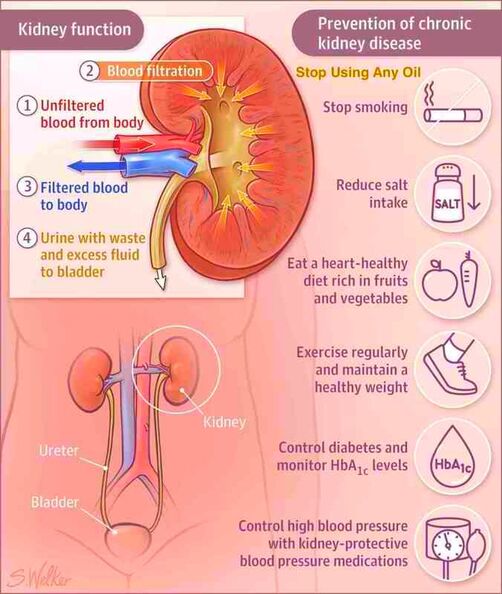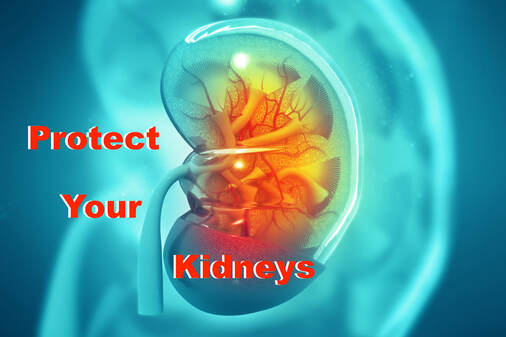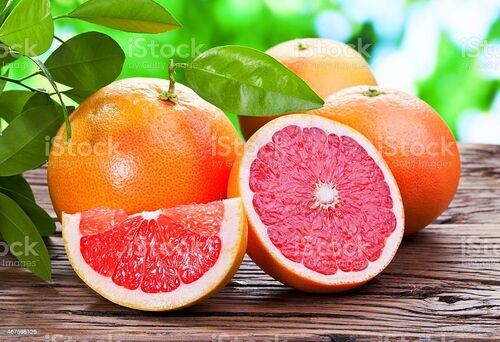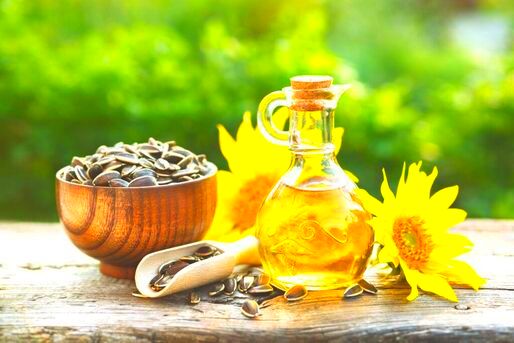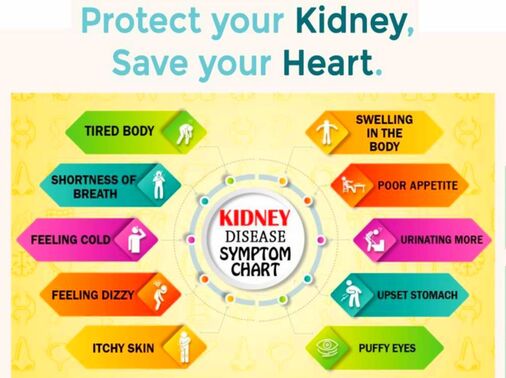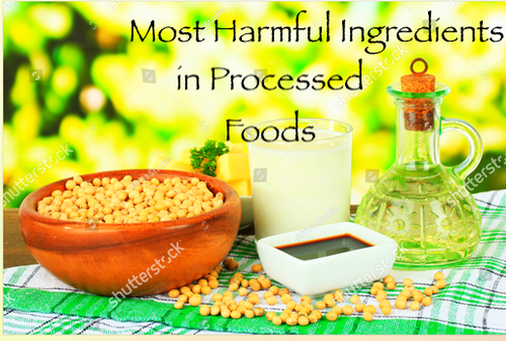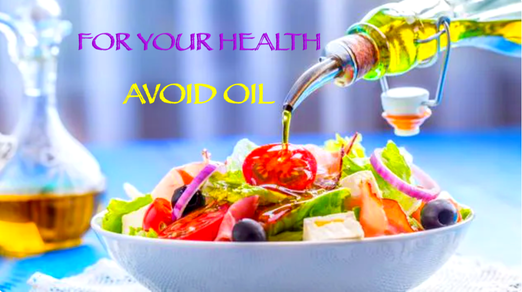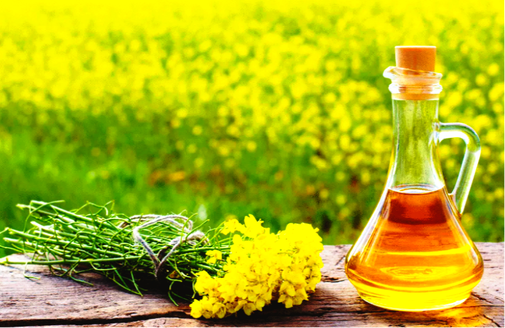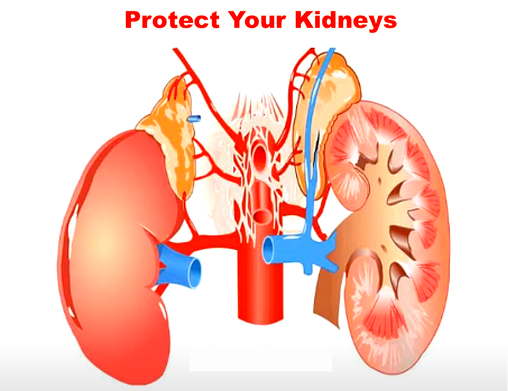🌸
most-harmful-in-food - cooking-without-oil
canola-oil--facts - stop-heating-oil
danger-of-sugar-fat
Miracle of Avocado - Avocado / 2
most-harmful-in-food - cooking-without-oil
canola-oil--facts - stop-heating-oil
danger-of-sugar-fat
Miracle of Avocado - Avocado / 2
🌸
🌸
🌸
Kidneys are very important to the body as they filter excess water,
waste products, and other impurities from your blood.
This is expelled through the urine.
Kidneys are also responsible for activating vitamin D in your body
which helps your body absorb
calcium for bone building and muscle function regulation.
🌸
Kidneys also regulate potassium levels and pH salt in the body.
They produce hormones that regulate and control the production of red blood cells.
Protecting your kidney is important to your general health and well-being.
By protecting your kidney, your body will function properly.
waste products, and other impurities from your blood.
This is expelled through the urine.
Kidneys are also responsible for activating vitamin D in your body
which helps your body absorb
calcium for bone building and muscle function regulation.
🌸
Kidneys also regulate potassium levels and pH salt in the body.
They produce hormones that regulate and control the production of red blood cells.
Protecting your kidney is important to your general health and well-being.
By protecting your kidney, your body will function properly.
🌸
Oils will harm the kidneys.
There are over 20 different types of oils used to cook.
If you are wondering which oil is best for your kidney ...
the BEST to AVOID ALL.
Fats and oils can affect the health of your kidneys.
Consume NO oils at all.
Oils will harm the kidneys.
There are over 20 different types of oils used to cook.
If you are wondering which oil is best for your kidney ...
the BEST to AVOID ALL.
Fats and oils can affect the health of your kidneys.
Consume NO oils at all.
🌸
Eat the NUTS,
Coconut or Avocado AS IS
without separating the oil ...
BUT SPARINGLY.
🌸
ACIDIC BODY
https://www.kindness2.com/acidic-body.html
Eat the NUTS,
Coconut or Avocado AS IS
without separating the oil ...
BUT SPARINGLY.
🌸
ACIDIC BODY
https://www.kindness2.com/acidic-body.html
🌸
Protect Your Kidneys
🌸
Protect Your Kidneys
🌸
Here are some things you can do to protect your kidney.
Exercise is a good way to protect your kidney. It reduces your blood pressure and reduces the risk of chronic kidney disease which are important to prevent your kidney from damage.
Dancing, running, and walking are great exercise tips for your health. You don’t have to run marathons to exercise.
Have fun by doing any activity you enjoy that keeps you busy. It will be easier to stick to such an activity than to do what you don’t enjoy.
Regular water intake is healthy for your kidneys. Drinking eight glasses of water a day is a good goal because it helps you to stay hydrated.
Water clears toxins and sodium from your kidney and helps reduce the risk of chronic kidney disease.
When planning your daily water intake, factors like overall health, climate, and lifestyle should be considered.
People with a condition that causes high blood sugar or diabetes may develop kidney damage.
This is so because when the cells in your body can’t use the sugar(glucose) in your blood, your kidneys are then forced to work extra hard to filter your blood which can lead to kidney damage.
Controlling or regulating your blood sugar helps reduce the risk of kidney damage.
Focus on eating naturally low sodium fresh food diet.
A healthy diet that is low in sodium and other kidney-damaging-related foods can help reduce the risk of kidney damage.
People who are overweight are at risk for several health conditions that can damage the kidney. Monitoring your weight would reduce the risk for several health conditions which can eventually lead to kidney damage.
Kidneys are an important part of the body system. The function of the kidney cannot be overlooked as it is very essential to the body. To keep your general well-being in check, do these five things mentioned above to protect your kidney.
Exercise is a good way to protect your kidney. It reduces your blood pressure and reduces the risk of chronic kidney disease which are important to prevent your kidney from damage.
Dancing, running, and walking are great exercise tips for your health. You don’t have to run marathons to exercise.
Have fun by doing any activity you enjoy that keeps you busy. It will be easier to stick to such an activity than to do what you don’t enjoy.
Regular water intake is healthy for your kidneys. Drinking eight glasses of water a day is a good goal because it helps you to stay hydrated.
Water clears toxins and sodium from your kidney and helps reduce the risk of chronic kidney disease.
When planning your daily water intake, factors like overall health, climate, and lifestyle should be considered.
People with a condition that causes high blood sugar or diabetes may develop kidney damage.
This is so because when the cells in your body can’t use the sugar(glucose) in your blood, your kidneys are then forced to work extra hard to filter your blood which can lead to kidney damage.
Controlling or regulating your blood sugar helps reduce the risk of kidney damage.
Focus on eating naturally low sodium fresh food diet.
A healthy diet that is low in sodium and other kidney-damaging-related foods can help reduce the risk of kidney damage.
People who are overweight are at risk for several health conditions that can damage the kidney. Monitoring your weight would reduce the risk for several health conditions which can eventually lead to kidney damage.
Kidneys are an important part of the body system. The function of the kidney cannot be overlooked as it is very essential to the body. To keep your general well-being in check, do these five things mentioned above to protect your kidney.
🌸
🌸
🌸
Grapefruit is a tropical citrus fruit known for its sweet yet tart taste.
It's rich in nutrients, antioxidants and fiber.
This makes it one of the healthiest citrus fruits you can eat.
Grapefruit is a great food for a balanced diet.
This is because it's rich in nutrients, but low in calories.
In fact, it's one of the lowest calorie fruits.
Plus, research has shown that grapefruit can have some powerful health benefits.
These include weight loss and a lower risk of heart disease.
Grapefruit is a rich source of powerful antioxidant phytochemicals,
which are likely responsible for many of its health benefits.
🌸
Did you know that consuming FRESH grapefruit juice
can help prevent calcium deposits and the formation of kidney stones?
Grapefruit is a tropical citrus fruit known for its sweet yet tart taste.
It's rich in nutrients, antioxidants and fiber.
This makes it one of the healthiest citrus fruits you can eat.
Grapefruit is a great food for a balanced diet.
This is because it's rich in nutrients, but low in calories.
In fact, it's one of the lowest calorie fruits.
Plus, research has shown that grapefruit can have some powerful health benefits.
These include weight loss and a lower risk of heart disease.
Grapefruit is a rich source of powerful antioxidant phytochemicals,
which are likely responsible for many of its health benefits.
🌸
Did you know that consuming FRESH grapefruit juice
can help prevent calcium deposits and the formation of kidney stones?
🌸
🌸
Most harmful ingredients in processed foods are ...
refined plant oils.
🌸
Begin healing today by cutting out the most noxious of the processed foods ...
polyunsaturated fatty acids (PUFAs)
found in industrially refined plant oils.
🌸
Most harmful ingredients in processed foods are ...
refined plant oils.
🌸
Begin healing today by cutting out the most noxious of the processed foods ...
polyunsaturated fatty acids (PUFAs)
found in industrially refined plant oils.
🌸
These oils are highly prone to a chemical transformation called oxidation,
which causes inflammation in the body when consumed.
Refined plant oils make a large contribution to obesity,
metabolic disease,
diabetes,
premature aging,
cancers,
dementia,
and a range of other diseases of modernity.
🌸
Vegetable oil - Soy(bean) oil - Corn oil - Canola oil - Sunflower oil - Safflower oil
Grapeseed oil - Rice Bran oil - Walnut oil - Cottonseed oil
🌸
And every incarnation of refined or hydrogenated plant oils including margarine,
‘blended dairy spread’, blended olive oil, etc.
🌸
Eat the NUTS,
Coconut or Avocado AS IS
without separating the oil ...
BUT SPARINGLY.
🌸
Whatever the root cause of your issue,
refined plant oils are definitely making it worse.
Be sure to check food labels for hidden plant oils
and be very wary of restaurant cooking
which almost invariably uses cheap plant oils to cut costs.
🌸
If you want to avoid
dangerous fats of all kinds,
your best bet is to eliminate processed foods from your diet.
🌸
which causes inflammation in the body when consumed.
Refined plant oils make a large contribution to obesity,
metabolic disease,
diabetes,
premature aging,
cancers,
dementia,
and a range of other diseases of modernity.
🌸
Vegetable oil - Soy(bean) oil - Corn oil - Canola oil - Sunflower oil - Safflower oil
Grapeseed oil - Rice Bran oil - Walnut oil - Cottonseed oil
🌸
And every incarnation of refined or hydrogenated plant oils including margarine,
‘blended dairy spread’, blended olive oil, etc.
🌸
Eat the NUTS,
Coconut or Avocado AS IS
without separating the oil ...
BUT SPARINGLY.
🌸
Whatever the root cause of your issue,
refined plant oils are definitely making it worse.
Be sure to check food labels for hidden plant oils
and be very wary of restaurant cooking
which almost invariably uses cheap plant oils to cut costs.
🌸
If you want to avoid
dangerous fats of all kinds,
your best bet is to eliminate processed foods from your diet.
🌸
🌸
🌸
All Vegetable Cooking Oils -
the Most Dangerous Thing you Consume
🌸
The corporate industrial food stuff scientists have managed to produce an ingredient
that behaves like naturally occurring oils.
These oils are very very cheap due to the enormous subsidies paid
to the GMO corn,
soy,
safflower,
rapeseed (canola)
and safflower producers.
Further fuelled by the demonisation of healthy Saturated Fatty Acids.
Seed oils interact with the human metabolism and the body does not know how to treat them,
it treats them normally and uses them in cell construction, however they are far from normal.
The manufacturing process renders these oils rancid and loaded with free-radicals
which cause damage to our cells internally.
These industrial oils have no place in the human diet
but they do produce huge profits for the corporate manufacturers.
🌸
All Vegetable Cooking Oils -
the Most Dangerous Thing you Consume
🌸
The corporate industrial food stuff scientists have managed to produce an ingredient
that behaves like naturally occurring oils.
These oils are very very cheap due to the enormous subsidies paid
to the GMO corn,
soy,
safflower,
rapeseed (canola)
and safflower producers.
Further fuelled by the demonisation of healthy Saturated Fatty Acids.
Seed oils interact with the human metabolism and the body does not know how to treat them,
it treats them normally and uses them in cell construction, however they are far from normal.
The manufacturing process renders these oils rancid and loaded with free-radicals
which cause damage to our cells internally.
These industrial oils have no place in the human diet
but they do produce huge profits for the corporate manufacturers.
🌸
🌸
BioChemist Dr. Mary Enig produced a ground breaking study which was buried.
Her lecture presented here by Sally Fallon.
it's a bit long but a very important presentation.
VIDEO • The Oiling of America ...
🌸
BioChemist Dr. Mary Enig produced a ground breaking study which was buried.
Her lecture presented here by Sally Fallon.
it's a bit long but a very important presentation.
VIDEO • The Oiling of America ...
🌸
🌸
They stop short of informing the viewer that the heat damages the molecular structure of the oil causing free radicals, and that the oil is rancid requiring bleaching and chemical deoderising.
VIDEO • How It's Made ... Vegetable Oil ...
🌸
They stop short of informing the viewer that the heat damages the molecular structure of the oil causing free radicals, and that the oil is rancid requiring bleaching and chemical deoderising.
VIDEO • How It's Made ... Vegetable Oil ...
🌸
🌸
One of the Most Harmful Ingredients
in Processed Foods
🌸
Dr. Joseph Mercola
🌸
One of the Most Harmful Ingredients
in Processed Foods
🌸
Dr. Joseph Mercola
🌸
STORY AT-A-GLANCE
Processed food is perhaps the most damaging aspect of most people's diets, contributing to poor health and chronic disease. One of the primary culprits is high fructose corn syrup (HFCS), the dangers of which I touch on in virtually every article I write on diets. The second culprit is partially hydrogenated soybean oil.
These two ingredients, either alone or in combination, can be found in virtually all processed foods, and one can make a compelling argument that the reliance on these two foods is a primary contributing factor for most of the degenerative diseases attacking Americans today.
Part of the problem with partially hydrogenated soybean oil is the trans fat it contains. The other part relates to the health hazards of soy itself. An added hazard factor is the fact that the majority of both corn and soybeans are genetically engineered.
As the negative health effects from trans fats have been identified and recognized, the agricultural and food industry have scrambled to come up with new alternatives. Partially hydrogenated soybean oil has been identified as the main culprit, and for good reason.
Unfortunately, saturated fats are still mistakenly considered unhealthy by many health "experts," so, rather than embracing truly healthful tropical fats like coconut oil, which is mostly grown outside the U.S., the food industry has instead turned to domestic U.S. alternatives offered by companies like Monsanto, now Bayer (which bought out Monsanto in 2018), which has developed modified soybeans that don't require hydrogenation.
Why Hydrogenate?
Americans consume more than 16 million metric tons of edible oils annually, and soybean oil accounts for about 11,339 metric tons of it.1 Until Monsanto genetically engineered its seeds to produce plants lower in linolenic acid, about half of it was hydrogenated, as regular soybean oil is too unstable otherwise to be used in food manufacturing.
One of the primary reasons for hydrogenating oil is to prolong its shelf life. Raw butter, for example, is likely to go rancid far quicker than margarine. The process also makes the oil more stable and raises its melting point, which allows it to be used in various types of food processing that uses high temperatures.
Hydrogenated oil
2 is made by forcing hydrogen gas into the oil at high pressure. Virtually any oil can be hydrogenated. Margarine is a good example, in which nearly half of the fat content is trans fat.
The process that creates partially hydrogenated oil alters the chemical composition of essential fatty acids, such as reducing or removing linolenic acid, a highly reactive triunsaturated fatty acid, transforming it into the far less reactive linoleic acid, thereby greatly preventing oxidative rancidity when used in cooking.
In the late 1990s, researchers began realizing this chemical alteration might actually have adverse health effects. Since then, scientists have verified this to the point of no dispute.
Be aware that there's a difference between "fully hydrogenated" and "partially hydrogenated" oils. Whereas partially hydrogenated oil contains trans fat, fully hydrogenated oil does not, as taking the hydrogenation process "all the way" continues the molecular transformation of the fatty acids from trans fat into saturated fatty acids.
Fully hydrogenated soybean oil is still not a healthy choice, however, for reasons I'll explain below. The following slide presentation explains the technical aspects relating to the hydrogenation process.
The Health Hazards of Trans Fats
The completely unnatural man-made fats created through the partial hydrogenation process cause dysfunction and chaos in your body on a cellular level, and studies have linked trans-fats to:
As usual, it took many years before conventional health recommendations caught up and began warning about the use of trans fats. Not surprisingly, as soon as the FDA notified them that it planned to require food manufacturers to list trans fat content on the label — which ultimately took effect January 1, 2006 — the industry began searching for viable alternatives to appeal to consumers who increasingly began looking for the "no trans fat" designation.
It didn't take long before Monsanto had tinkered forth a genetically engineered soybean that is low in linolenic acid, which we'll get to in a moment.
Be aware that some food manufacturers have opted to simply fool buyers — a tactic allowed by the FDA, as any product containing up to half a gram of trans fat per serving can still legally claim to have zero trans fat.3 The trick is to reduce the serving size to bring it below this threshold. At times, this will result in unreasonably tiny serving sizes, so any time you check a label and a serving is something like 10 chips or one cookie, it probably contains trans fats.
The Health Hazards of Soybeans
Besides the health hazards related to the trans fats created by the partial hydrogenation process, soybean oil is, in and of itself, NOT a healthy oil. Add to that the fact that the majority of soy grown in the U.S. is genetically engineered, which may have additional health consequences. When taken together, partially hydrogenated GE soybean oil becomes one of the absolute worst types of oils you can consume.
Years ago, tropical oils, such as palm and coconut oil, were commonly used in American food production. However, these are obviously not grown in the U.S., as with the exception of Hawaii, our climate isn't tropical enough. Spurred by financial incentives, the industry devised a plan to shift the market from tropical oils to something more "home grown."
As a result, a movement was created to demonize and vilify tropical oils in order to replace them with domestically grown oils such as corn and soy.
The fat in soybean oil is primarily omega-6 fat. And while we do need some omega-6, it is rare for anyone to be deficient in it, as it is pervasive in our diet. Americans in general consume FAR too much omega-6 in relation to omega-3 fat, primarily due to the excessive amount of omega-6 found in processed foods.
Omega-6 fats are in nearly every animal food and many plants, so deficiencies are very rare. This omega-6 fat is also highly processed and therefore damaged, which compounds the problem of getting so much of it in your diet. The omega-6 found in soybean oil promotes chronic inflammation in your body, which is an underlying issue for virtually all chronic diseases.
What About Organic Soybean Oil?
Even if you were fortunate enough to find organic soybean oil, there are still several significant concerns that make it far from attractive from a health standpoint. Soy in and of itself, organically grown or not, contains a number of problematic components that can wreak havoc with your health, such as:
•Goitrogens -- Goitrogens, found in all unfermented soy whether it's organic or not, are substances that block the synthesis of thyroid hormones and interfere with iodine metabolism, thereby interfering with your thyroid function.
•Isoflavones: genistein and daidzein -- Isoflavones are a type of phytoestrogen, which is a plant compound resembling human estrogen, which is why some recommend using soy therapeutically to treat symptoms of menopause. I believe the evidence is highly controversial and doubt it works.
Typically, most of us are exposed to too many estrogen compounds and have a lower testosterone level than ideal, so it really is important to limit exposure to feminizing phytoestrogens. Even more importantly, there's evidence it may disturb endocrine function, cause infertility and promote breast cancer, which is definitely a significant concern.
•Phytic acid -- Phytates (phytic acid) bind to metal ions, preventing the absorption of certain minerals, including calcium, magnesium, iron, and zinc — all of which are co-factors for optimal biochemistry in your body. This is particularly problematic for vegetarians, because eating meat reduces the mineral-blocking effects of these phytates.
Sometimes it can be beneficial, especially in postmenopausal women and in most adult men because we tend to have levels of iron that are too high, which can be a very potent oxidant and cause biological stress. However, phytic acid does not necessarily selectively inhibit just iron absorption; it inhibits all minerals. This is very important to remember, as many already suffer from mineral deficiencies from inadequate diets.
The soybean has one of the highest phytate levels of any grain or legume, and the phytates in soy are highly resistant to normal phytate-reducing techniques such as long, slow cooking. Only a long period of fermentation will significantly reduce the phytate content of soybeans.
•Natural toxins known as "anti-nutrients" -- Soy also contains other anti-nutritional factors such as saponins, soyatoxin, protease inhibitors, and oxalates. Some of these factors interfere with the enzymes you need to digest protein. While a small amount of anti-nutrients would not likely cause a problem, the amount of soy that many Americans are now eating is extremely high.
•Hemagglutinin -- Hemagglutinin is a clot-promoting substance that causes your red blood cells to clump together. These clumped cells are unable to properly absorb and distribute oxygen to your tissues.
Worst of All — Genetically Engineered Soybean Oil
The genetically engineered (GE) variety planted on over 90% of US soy acres is Roundup Ready — engineered to survive being doused with otherwise lethal amounts of Monsanto's Roundup herbicide. The logic behind Roundup Ready crops such as soy is that you can decrease the cost of production by killing off everything except the actual soy plant.
However, animal studies reveal there may be significant adverse health effects from these GE soybeans, including progressively increased rates of infertility with each passing generation. By the third generation, virtually all the hamsters in one feeding study were found to be infertile. Second-generation hamsters raised on GE soy also had a fivefold higher infant mortality rate.
Are Low-Linolenic Soybeans the Answer?
We now also have other Monsanto-made soy crops to contend with. Responding to the growing demand for healthier diets, Monsanto launched Vistive low-linolenic soybeans in 2005. Most soybeans contain roughly 7% linolenic acid. The new varieties contain 1% to 3%, which reduces the need for hydrogenation.4 As explained by Monsanto:5
“Farmers are not the only beneficiaries of Monsanto’s efforts ... Consumers will also benefit from the healthier crops that could result, such as soybeans that are low in linolenic acid. Linolenic acid, a precursor to trans fats, may contribute to cardiovascular disease ... Low-linolenic soybeans reduce the need for hydrogenation in food processing, helping to reduce the amount of trans fats in processed foods.”
Yet another soybean variety created by Monsanto is the high stearate soybean, which also has the properties of margarine and shortening without hydrogenation. But are these soybeans any better or safer than either conventional soybeans or Roundup Ready soybeans, even though they don't have to go through partial hydrogenation, and therefore do not contain trans fat? No one knows.
Another Hazard of GE Soybeans:
GlyphosateI keep stacking health risks upon health risks, and here's another one: Research has shown that soybean oil from Roundup Ready soy is loaded with glyphosate, the main ingredient in Roundup — the broad-spectrum herbicide created by Monsanto.
According to a report in the journal Chemical Research in Toxicology, the highest MRL for glyphosate in food and feed products in the EU is 20 mg/kg. GE soybeans have been found to contain residue levels as high as 17 mg/kg, and malformations in frog and chicken embryos occurred at 2.03 mg/kg.6 That's 10 times lower than the MRL.
This is an alarming finding because glyphosate is easily one of the world's most overlooked poisons. Research published in 2010 showed that the chemical, which works by inhibiting an enzyme called EPSP synthase that is necessary for plants to grow, causes birth defects in frogs and chicken embryos at far lower levels than used in agricultural and garden applications.7 The malformations primarily affected the:
When applied to crops, glyphosate becomes systemic throughout the plant, so it cannot be washed off. And, once you eat this crop, the glyphosate ends up in your gut where it can decimate your beneficial bacteria. This can wreak havoc with your health, as 80% of your immune system resides in your gut (GALT, or Gut Associated Lymph Tissue) and is dependent on a healthy ratio of good and bad bacteria. Separate research has also uncovered the following effects from glyphosate:
https://articles.mercola.com/sites/articles/archive/2023/01/03/soybean-oil.aspx?
- Two of the most harmful ingredients in processed foods are high fructose corn syrup and soybean oil, whether partially hydrogenated, organic, or made from newer soybean varieties modified in such a way as to not require hydrogenation
- Completely unnatural man-made fats created through the partial hydrogenation process cause dysfunction and chaos in your body on a cellular level, and studies have linked trans-fats to health problems ranging from obesity and diabetes to reproductive problems and heart disease
- Besides the health hazards related to the trans fats created by the partial hydrogenation process, soybean oil is, in and of itself, NOT a healthy oil
- Add to that the fact that the majority of soybeans grown in the U.S. are genetically engineered, and as a result saturated with dangerous levels of the herbicide glyphosate, which may have additional health consequences as there are no long term safety studies
- When taken together, partially hydrogenated GE soybean oil becomes one of the absolute worst types of oils you can consume
- The genetically engineered (GE) variety planted on over 90% of U.S. soy acres is Roundup Ready engineered to survive being doused with otherwise lethal amounts of Monsanto's Roundup herbicide (glyphosate). GE soybeans have been found to contain residue levels as high as 17 mg/kg, and malformations in frog and chicken embryos have occurred at just over 2 mg/kg
Processed food is perhaps the most damaging aspect of most people's diets, contributing to poor health and chronic disease. One of the primary culprits is high fructose corn syrup (HFCS), the dangers of which I touch on in virtually every article I write on diets. The second culprit is partially hydrogenated soybean oil.
These two ingredients, either alone or in combination, can be found in virtually all processed foods, and one can make a compelling argument that the reliance on these two foods is a primary contributing factor for most of the degenerative diseases attacking Americans today.
Part of the problem with partially hydrogenated soybean oil is the trans fat it contains. The other part relates to the health hazards of soy itself. An added hazard factor is the fact that the majority of both corn and soybeans are genetically engineered.
As the negative health effects from trans fats have been identified and recognized, the agricultural and food industry have scrambled to come up with new alternatives. Partially hydrogenated soybean oil has been identified as the main culprit, and for good reason.
Unfortunately, saturated fats are still mistakenly considered unhealthy by many health "experts," so, rather than embracing truly healthful tropical fats like coconut oil, which is mostly grown outside the U.S., the food industry has instead turned to domestic U.S. alternatives offered by companies like Monsanto, now Bayer (which bought out Monsanto in 2018), which has developed modified soybeans that don't require hydrogenation.
Why Hydrogenate?
Americans consume more than 16 million metric tons of edible oils annually, and soybean oil accounts for about 11,339 metric tons of it.1 Until Monsanto genetically engineered its seeds to produce plants lower in linolenic acid, about half of it was hydrogenated, as regular soybean oil is too unstable otherwise to be used in food manufacturing.
One of the primary reasons for hydrogenating oil is to prolong its shelf life. Raw butter, for example, is likely to go rancid far quicker than margarine. The process also makes the oil more stable and raises its melting point, which allows it to be used in various types of food processing that uses high temperatures.
Hydrogenated oil
2 is made by forcing hydrogen gas into the oil at high pressure. Virtually any oil can be hydrogenated. Margarine is a good example, in which nearly half of the fat content is trans fat.
The process that creates partially hydrogenated oil alters the chemical composition of essential fatty acids, such as reducing or removing linolenic acid, a highly reactive triunsaturated fatty acid, transforming it into the far less reactive linoleic acid, thereby greatly preventing oxidative rancidity when used in cooking.
In the late 1990s, researchers began realizing this chemical alteration might actually have adverse health effects. Since then, scientists have verified this to the point of no dispute.
Be aware that there's a difference between "fully hydrogenated" and "partially hydrogenated" oils. Whereas partially hydrogenated oil contains trans fat, fully hydrogenated oil does not, as taking the hydrogenation process "all the way" continues the molecular transformation of the fatty acids from trans fat into saturated fatty acids.
Fully hydrogenated soybean oil is still not a healthy choice, however, for reasons I'll explain below. The following slide presentation explains the technical aspects relating to the hydrogenation process.
The Health Hazards of Trans Fats
The completely unnatural man-made fats created through the partial hydrogenation process cause dysfunction and chaos in your body on a cellular level, and studies have linked trans-fats to:
As usual, it took many years before conventional health recommendations caught up and began warning about the use of trans fats. Not surprisingly, as soon as the FDA notified them that it planned to require food manufacturers to list trans fat content on the label — which ultimately took effect January 1, 2006 — the industry began searching for viable alternatives to appeal to consumers who increasingly began looking for the "no trans fat" designation.
It didn't take long before Monsanto had tinkered forth a genetically engineered soybean that is low in linolenic acid, which we'll get to in a moment.
Be aware that some food manufacturers have opted to simply fool buyers — a tactic allowed by the FDA, as any product containing up to half a gram of trans fat per serving can still legally claim to have zero trans fat.3 The trick is to reduce the serving size to bring it below this threshold. At times, this will result in unreasonably tiny serving sizes, so any time you check a label and a serving is something like 10 chips or one cookie, it probably contains trans fats.
The Health Hazards of Soybeans
Besides the health hazards related to the trans fats created by the partial hydrogenation process, soybean oil is, in and of itself, NOT a healthy oil. Add to that the fact that the majority of soy grown in the U.S. is genetically engineered, which may have additional health consequences. When taken together, partially hydrogenated GE soybean oil becomes one of the absolute worst types of oils you can consume.
Years ago, tropical oils, such as palm and coconut oil, were commonly used in American food production. However, these are obviously not grown in the U.S., as with the exception of Hawaii, our climate isn't tropical enough. Spurred by financial incentives, the industry devised a plan to shift the market from tropical oils to something more "home grown."
As a result, a movement was created to demonize and vilify tropical oils in order to replace them with domestically grown oils such as corn and soy.
The fat in soybean oil is primarily omega-6 fat. And while we do need some omega-6, it is rare for anyone to be deficient in it, as it is pervasive in our diet. Americans in general consume FAR too much omega-6 in relation to omega-3 fat, primarily due to the excessive amount of omega-6 found in processed foods.
Omega-6 fats are in nearly every animal food and many plants, so deficiencies are very rare. This omega-6 fat is also highly processed and therefore damaged, which compounds the problem of getting so much of it in your diet. The omega-6 found in soybean oil promotes chronic inflammation in your body, which is an underlying issue for virtually all chronic diseases.
What About Organic Soybean Oil?
Even if you were fortunate enough to find organic soybean oil, there are still several significant concerns that make it far from attractive from a health standpoint. Soy in and of itself, organically grown or not, contains a number of problematic components that can wreak havoc with your health, such as:
•Goitrogens -- Goitrogens, found in all unfermented soy whether it's organic or not, are substances that block the synthesis of thyroid hormones and interfere with iodine metabolism, thereby interfering with your thyroid function.
•Isoflavones: genistein and daidzein -- Isoflavones are a type of phytoestrogen, which is a plant compound resembling human estrogen, which is why some recommend using soy therapeutically to treat symptoms of menopause. I believe the evidence is highly controversial and doubt it works.
Typically, most of us are exposed to too many estrogen compounds and have a lower testosterone level than ideal, so it really is important to limit exposure to feminizing phytoestrogens. Even more importantly, there's evidence it may disturb endocrine function, cause infertility and promote breast cancer, which is definitely a significant concern.
•Phytic acid -- Phytates (phytic acid) bind to metal ions, preventing the absorption of certain minerals, including calcium, magnesium, iron, and zinc — all of which are co-factors for optimal biochemistry in your body. This is particularly problematic for vegetarians, because eating meat reduces the mineral-blocking effects of these phytates.
Sometimes it can be beneficial, especially in postmenopausal women and in most adult men because we tend to have levels of iron that are too high, which can be a very potent oxidant and cause biological stress. However, phytic acid does not necessarily selectively inhibit just iron absorption; it inhibits all minerals. This is very important to remember, as many already suffer from mineral deficiencies from inadequate diets.
The soybean has one of the highest phytate levels of any grain or legume, and the phytates in soy are highly resistant to normal phytate-reducing techniques such as long, slow cooking. Only a long period of fermentation will significantly reduce the phytate content of soybeans.
•Natural toxins known as "anti-nutrients" -- Soy also contains other anti-nutritional factors such as saponins, soyatoxin, protease inhibitors, and oxalates. Some of these factors interfere with the enzymes you need to digest protein. While a small amount of anti-nutrients would not likely cause a problem, the amount of soy that many Americans are now eating is extremely high.
•Hemagglutinin -- Hemagglutinin is a clot-promoting substance that causes your red blood cells to clump together. These clumped cells are unable to properly absorb and distribute oxygen to your tissues.
Worst of All — Genetically Engineered Soybean Oil
The genetically engineered (GE) variety planted on over 90% of US soy acres is Roundup Ready — engineered to survive being doused with otherwise lethal amounts of Monsanto's Roundup herbicide. The logic behind Roundup Ready crops such as soy is that you can decrease the cost of production by killing off everything except the actual soy plant.
However, animal studies reveal there may be significant adverse health effects from these GE soybeans, including progressively increased rates of infertility with each passing generation. By the third generation, virtually all the hamsters in one feeding study were found to be infertile. Second-generation hamsters raised on GE soy also had a fivefold higher infant mortality rate.
Are Low-Linolenic Soybeans the Answer?
We now also have other Monsanto-made soy crops to contend with. Responding to the growing demand for healthier diets, Monsanto launched Vistive low-linolenic soybeans in 2005. Most soybeans contain roughly 7% linolenic acid. The new varieties contain 1% to 3%, which reduces the need for hydrogenation.4 As explained by Monsanto:5
“Farmers are not the only beneficiaries of Monsanto’s efforts ... Consumers will also benefit from the healthier crops that could result, such as soybeans that are low in linolenic acid. Linolenic acid, a precursor to trans fats, may contribute to cardiovascular disease ... Low-linolenic soybeans reduce the need for hydrogenation in food processing, helping to reduce the amount of trans fats in processed foods.”
Yet another soybean variety created by Monsanto is the high stearate soybean, which also has the properties of margarine and shortening without hydrogenation. But are these soybeans any better or safer than either conventional soybeans or Roundup Ready soybeans, even though they don't have to go through partial hydrogenation, and therefore do not contain trans fat? No one knows.
Another Hazard of GE Soybeans:
GlyphosateI keep stacking health risks upon health risks, and here's another one: Research has shown that soybean oil from Roundup Ready soy is loaded with glyphosate, the main ingredient in Roundup — the broad-spectrum herbicide created by Monsanto.
According to a report in the journal Chemical Research in Toxicology, the highest MRL for glyphosate in food and feed products in the EU is 20 mg/kg. GE soybeans have been found to contain residue levels as high as 17 mg/kg, and malformations in frog and chicken embryos occurred at 2.03 mg/kg.6 That's 10 times lower than the MRL.
This is an alarming finding because glyphosate is easily one of the world's most overlooked poisons. Research published in 2010 showed that the chemical, which works by inhibiting an enzyme called EPSP synthase that is necessary for plants to grow, causes birth defects in frogs and chicken embryos at far lower levels than used in agricultural and garden applications.7 The malformations primarily affected the:
- Skull
- Face
- Midline and developing brain
- Spinal cord
When applied to crops, glyphosate becomes systemic throughout the plant, so it cannot be washed off. And, once you eat this crop, the glyphosate ends up in your gut where it can decimate your beneficial bacteria. This can wreak havoc with your health, as 80% of your immune system resides in your gut (GALT, or Gut Associated Lymph Tissue) and is dependent on a healthy ratio of good and bad bacteria. Separate research has also uncovered the following effects from glyphosate:
https://articles.mercola.com/sites/articles/archive/2023/01/03/soybean-oil.aspx?
🌸
No Extracted Oil Should be Used at All
🌸
Replace the use of oils and fats with water soluble oils only.
All kinds of nuts ... if you put them in a blender they mix with water.
But not the roasted, extracted oil, Margarine ... Butter ... Cheese ...
They do not mix with water ...
Eat only the Oil as it is in the nuts or in the seeds ...
🌸
https://www.kindness2.com/most-harmful-in-food.html
🌸
No Extracted Oil Should be Used at All
🌸
Replace the use of oils and fats with water soluble oils only.
All kinds of nuts ... if you put them in a blender they mix with water.
But not the roasted, extracted oil, Margarine ... Butter ... Cheese ...
They do not mix with water ...
Eat only the Oil as it is in the nuts or in the seeds ...
🌸
https://www.kindness2.com/most-harmful-in-food.html
🌸
🌸
The Best ... Cook Without Oil
🌸
https://www.kindness2.com/cooking-without-oil.html
🌸
https://www.kindness2.com/canola-oil--facts.html
🌸
The Miracle of Avocado
Miracle of Avocado
Avocado / 2
🌸
NEVER EAT Sugar With Nuts
https://www.kindness2.com/danger-of-sugar--fat.html
🌸
The Best ... Cook Without Oil
🌸
https://www.kindness2.com/cooking-without-oil.html
🌸
https://www.kindness2.com/canola-oil--facts.html
🌸
The Miracle of Avocado
Miracle of Avocado
Avocado / 2
🌸
NEVER EAT Sugar With Nuts
https://www.kindness2.com/danger-of-sugar--fat.html
🌸
🌸
🌸

